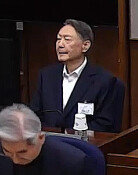[Opinion] Digital Populism
In the Internet world, the value of a network increases in proportion to the number of users. It is the Law of Metcalfe, named after Internet pioneer Bob Metcalfe who invented Ethernet in 1973. Metcalfe argued that the value of network was proportional to the square of the number of users. Anyone can easily understand the statement without any explanation. As more and more users flock to the Internet, the amount of information circulating on the Internet also increases. Also, the influence of the Internet has grown. This attribute of the Internet corresponds with the value of democracy, which argues that sovereignty rests with the people. Given this principle, the value of democracy grows when more people participate in the political process.
However, representative democracy has been inevitably installed since not all the people can be engaged in direct democracy at any time. Worryingly, however, the citizens participation in politics is limited under the system of representative democracy. French philosopher Jean-Jacques Rousseau said, The public can make their voice heard only when they elect representatives. Even though Rousseaus argument is not true, public sentiments and politics do not necessarily go along with each other. The Internet shows the possibility of becoming a path that can make up for the weakness of representative democracy, which has failed to catch up rapidly changing public sentiments.
However, as democracy can go beyond the decision by majority to the tyranny of majority, the Internet can also fall into that trap. On the Internet, it is structurally impossible for the government or established media such as newspapers to control information flow. Political scientists Anthony Corrado and Charles M. Firestone pointed out, The Internet weakens the peoples information dependency on government officials, politicians and interest groups. On the other hand, unverified information and comments attached to articles on the Internet have enormous impact. Such an environment affects mass psychology, thus inviting populism.
Korean writer Lee Moon-yeol told reporters, On one hand, the essence of candlelight vigils is great. But, it shows the victory of disastrous digital populism, on the other hand. He explained that it is great in that it makes an improbable event happen, but it can be disastrous if such a group behavior affects other issues. One of populisms features is that people make judgment based on their emotions, not reasons. Since the public can hide their identities on the Internet, they tend to resort to emotions, instead of taking a rational approach. Korea is the worlds most outstanding Internet powerhouse. Koreas Internet is now put on the test stand. Will Koreas advanced Internet culture be the stronghold of democracy or the birthplace of populism?
Editorial Writer Chung Seong-hee (shchung@donga.com)




![17년 망명 끝에, 부모 원수 내쫓고 집권[지금, 이 사람]](https://dimg.donga.com/c/138/175/90/1/wps/NEWS/IMAGE/2026/02/18/133376197.3.jpg)


